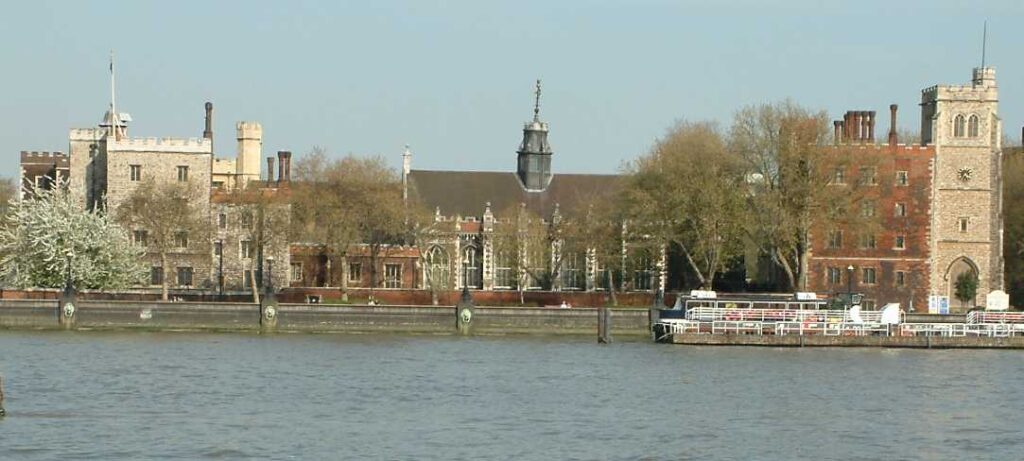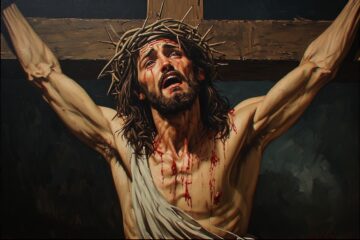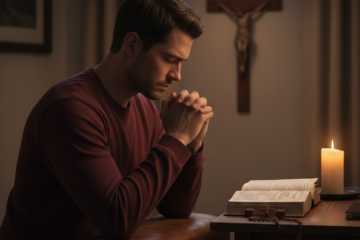What the Church of England’s latest innovation reveals about divine judgement and human disobedience
The appointment of Hon. Dame Sarah Mullally DBE to the See of Canterbury has, understandably and not altogether unexpectedly, stirred profound conversation across the Anglican world. To many, it represents a triumph of inclusion and equality and the fruit of the push towards a more inclusive church. To others, particularly within the conservative wing of Anglicanism, it feels like a deep wound, the wholly foreseeable and inevitable shift towards a more socially “acceptable” church — not because women are of lesser worth, but because such a move appears to contradict the very pattern of divinely authored Scripture and the unbroken practice of the Church through the centuries.
It is precisely here that we (even as simple pew-sitters and armchair theologians) must consider what this moment might mean in the light of God’s sovereignty. Could it be, as some have begun to suggest, that this appointment is not a sign of divine “progress”, but of divine judgement, a moment permitted by God to reveal the full consequence of a Church that has drifted from apostolic faithfulness?
Of course there will be the inevitable headlines screaming “misogyny” or “exclusion” as various Anglican groups and individual churches distance themselves from Lambeth and Canterbury but as a church, we must do better than harken to the point-scoring secular press (and even General Synod) and look deeper than mere soundbites.

The long decline of reliance on theological certainty
The story of the Church of England’s divergence from its historic teaching did not begin with this latest appointment. The formation of the General Synod in 1970, followed by the 1992 decision to ordain women as priests, marked a decisive shift in the Church’s self-understanding. No longer did doctrine seem to flow naturally from Scripture and tradition; it began instead to be negotiated by committee, debated like legislation, and decided by majority vote drawn from the prevailing zeitgeist.
The consequences of that shift in “modus interpretationis scripturae” has been immense. One can trace a line from that first move away from apostolic order to a whole series of accommodations with the spirit of the age: the erosion of liturgical discipline, the redefinition of marriage, the decline in catechesis, and the confusion of moral teaching. Each decision was defended as progress, yet each seemed to hollow out the Church’s spiritual core.
However, when viewed through the lens of divine sovereignty, such developments may not merely be unfortunate mistakes, but acts of judgement. The Old Testament pattern is sobering: when Israel persisted in disobedience, God often allowed her to have her own way – to taste the fruit of rebellion until repentance became possible (cf. Psalm 81:11–12; Isaiah 1:19–20).

Scripture and the order of creation
The argument against female ordination, despite what the media and various church pressure groups might say, is not rooted in prejudice but in fidelity to the plain teaching of Scripture and the witness of the early Church. If scripture is divinely authored then it is just that, divine writ, and to suggest that somehow the teaching has been misrepresented to suit the agenda of mere misogynists is I would say, to refute the sovereignty of God over all His creation. St Paul’s words to Timothy remain as clear as they are countercultural: “I do not permit a woman to teach or to exercise authority over a man; she is to remain quiet. For Adam was formed first, then Eve.” (1 Timothy 2:12–13).
Likewise, the qualifications for overseers in 1 Timothy 3 describe “the husband of one wife,” assuming male incumbency, not by accident but by design. The same logic undergirds Paul’s instruction in 1 Corinthians 14:33–35, where the apostolic order of worship presupposes male headship within the assembly.
These are not culturally contingent commands. They are grounded in the order of creation itself, an order that pre-dates the fall and is redeemed, not erased, by Christ. Our Lord Himself chose twelve male apostles, not as a concession to the culture of His day, but as a symbolic act aligned with the Father’s design.
The early Church Fathers, East and West alike, took this as a settled matter. Women held honoured roles as deaconesses, teachers, prophets, and martyrs, yet never as priests or bishops. The Church’s reasoning was simple: the priest stands in persona Christi, in the person of Christ the Bridegroom, offering Himself for His Bride, the Church (Ephesians 5:25–32). The symbolism is not incidental but sacramental and thus to undo it is to unmake the sign.
Hearing the counter-arguments
Of course, advocates of women’s ordination point to figures like Deborah, Huldah, or Priscilla, arguing that God has long used women in leadership and teaching. This is true, and should be joyfully affirmed. Yet none of these examples overturns the apostolic prohibition. Deborah, though a judge, was not a priest; Priscilla instructed privately with her husband; Phoebe served as a deaconess, not a presbyter.
Some suggest that these prohibitions were merely cultural, bound to the patriarchal norms of the first century. But this view cannot stand when St Paul himself grounds his argument not in culture but in creation: “For Adam was formed first, then Eve” (1 Timothy 2:13). Others claim that equality in Christ (Galatians 3:28) abolishes such distinctions. Yet the same Paul who wrote that verse also penned the pastoral epistles.
Equality before God does not mean interchangeability of roles within His Church.
In truth, the Church can and should celebrate the manifold gifts of women without abandoning the divinely ordained distinction of roles. The Virgin Mary herself stands as the supreme example, the highest creature yet never a priest, indeed The Blessed Virgin Mary reveals that holiness and authority are not the same thing.
What of judgement or mercy?
If the office of Archbishop is one of apostolic oversight, then to appoint one who stands outside the apostolic pattern is, by definition, heterodox. And yet the sovereign God may still be working through it. The prophet Isaiah tells us that God “makes peace and creates calamity” (Isaiah 45:7), and Job confesses, “The Lord gave, and the Lord has taken away” (Job 1:21). The Lord may give His Church over to its own desires so that, in the end, it might awaken to its need of repentance.
This is not a call to despair, but to humility. Divine judgement is rarely punitive alone; it is often remedial. The seven churches in Revelation are warned in precisely this way: “Remember from where you have fallen; repent, and do the works you did at first” (Revelation 2:5). God chastens those He loves, and His purpose is always restoration (Hebrews 12:6).
Thus, the present state of the Church of England might be read as both warning and invitation. It warns that when human wisdom replaces divine revelation, confusion follows. Yet it also invites repentance, a return to the simplicity of obedience and the confidence that God’s pattern is good, even when the world calls it unjust.
A heartfelt call to faithfulness
The temptation in this moment is to yield to pragmatism: to reason that since the change has been made, one must simply accept it for the sake of unity. But unity built on untruth is no unity at all. The Church must recover her confidence that faithfulness to God matters more than popularity with man. The Gospel has never advanced by compromise with the age, but by obedience to Christ.
That very church which the world likes best is sure to be that which God abhors. – Charles Spurgeon
To hold to the historic position is not to demean women, but to honour the pattern by which God orders His creation. The Church does not need women to become priests to affirm their worth as the crown of creation; it needs all its members both male and female (and that is ALL there is) to serve faithfully in the roles which God has given. In doing so, it bears witness to a divine order that the world neither understands nor can replicate.
In this sense, to remain faithful to the ordained and apostolic order is an act of hope. It says, in effect, that God knows what He is doing, even when His ways seem foolish to modern sensibilities (1 Corinthians 1:25).
Fin
The sad recent appointment of Sarah Mullally to the historic position of Archbishop of Canterbury stands as a watershed moment and one that may yet be revealed as an act of divine judgement permitted for the chastening of a Church that has trusted its own wisdom for far too long. Yet judgement, in Scripture, is always bound up with mercy and we know that God does not abandon His people; He calls them back.
May the Church of England hear that call. May she repent of her unfaithfulness, recover her confidence in Scripture and tradition, and once again bear witness to the beauty of God’s design. And may all of us, whatever our position, pray for her renewal, for only by grace can the Church be restored to the obedience of faith.
“He who has an ear, let him hear what the Spirit says to the churches.” (Revelation 2:7)




0 Comments